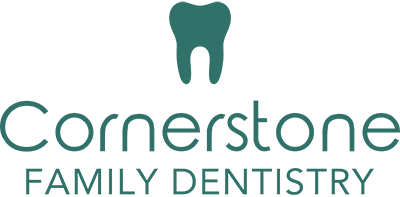While crooked teeth often get the most attention when it comes to orthodontics because they are more noticeable and many people desire straight teeth, having a misaligned jaw can arguably be a more serious issue. Jaw misalignment can bring about all kinds of trouble, such as difficulty eating, cosmetic issues, trouble sleeping, and severe discomfort or pain. When your upper and lower jaws do not align, this is called a malocclusion. There are several different kinds of malocclusions. In order to fix the problem, the first thing your dentist will do is determine what kind of malocclusion you have. Once that has been established, you and your dentist will be able to determine the best treatment options.
Here are the four main types of malocclusions and possible treatments your dentist may consider.
- Overbite
While slight overlap is common in most people, an overbite malocclusion is when the front teeth overlap the bottom teeth too much. If you have an overbite, braces will likely be recommended. The braces will be used to realign your teeth, and then rubber bands can be used to help slowly shift the jaw into its proper place.
- Underbite
An underbite is when the lower teeth or jaw overlap your upper teeth. While an overbite can be caused by many extenuating factors such as thumb sucking or nail biting, an underbite is almost always hereditary. Similar to an overbite, most underbites can be corrected with braces and rubber bands. If the underbite is severe, there are other treatment options such as a reverse-pull face mask (similar to braces headgear) or a palatal expander.
- Crossbite
One of the more common malocclusions is called a crossbite. A crossbite happens when the lower teeth cover one or more upper teeth when you bite down. This can happen in more than one place in your mouth and can cause jaw pain and headaches if left untreated. If you have a crossbite, your dentist will likely recommend braces. Braces will help straighten the teeth which will in turn align the jaw. Like the underbite, for more severe cases of a crossbite, your dentist may recommend a palatal expander. A palatal expander increases the size of the upper jaw.
- Openbite
An openbite occurs when teeth do not make contact with each other when your jaw is closed. There are two types of openbites. A posterior openbite is when your back teeth do not touch when your teeth are closed together. When your front teeth do not touch when your teeth are closed together, this is called an anterior openbite. While openbites can sometimes be trickier to treat than other malocclusions, your dentist will most likely first try to fix the problem with braces. For some severe cases, a dentist may recommend corrective jaw surgery where a surgeon will realign the jawbones so that the teeth better align.
If you think you may have one of these jaw misalignments, your first line-of-defense is to visit your dentist. He or she will do an examination of your teeth and jaw, take X-rays, and help you find the treatment that is right for you. We would love to help you at Cornerstone Family Dentistry, so please make an appointment with us today!



